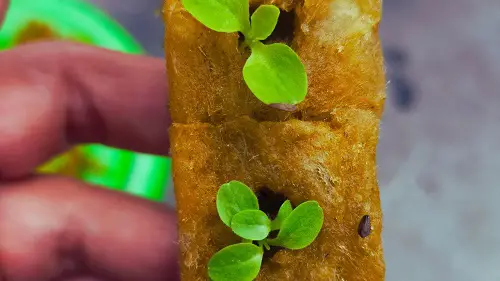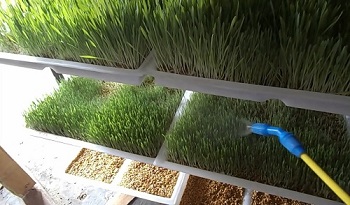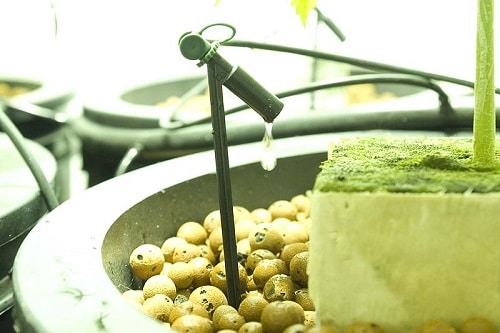Hydroponic gardening is gaining popularity because of its numerous advantages over traditional soil-based gardening. Hydroponic systems allow plants to grow in a controlled environment without the need for soil, making them an ideal choice for indoor gardening. One of the most critical aspects of hydroponic gardening is watering. Hydroponic watering involves providing plants with the right amount of water and nutrients, ensuring that they grow strong and healthy.
In this complete guide, we will cover everything you need to know about hydroponic watering, including its importance, different watering systems, and common mistakes to avoid.
Importance of Hydroponic Watering
Water is essential for plant growth, and it is no different in hydroponic gardening. However, the importance of watering in hydroponic systems goes beyond just providing plants with the right amount of moisture. In hydroponic gardening, plants rely on the nutrient solution in the water for their growth. The nutrient solution contains all the necessary minerals and nutrients that plants need to grow strong and healthy. Without proper watering, plants can quickly become nutrient deficient, leading to stunted growth or even death.
Types of Hydroponic Watering Systems
There are several types of hydroponic watering systems, each with its unique advantages and disadvantages. The most common types of hydroponic watering systems include:
Deep Water Culture (DWC)
DWC is a popular hydroponic watering system that involves suspending the plants’ roots in a nutrient-rich water solution. In this system, an air pump is used to provide oxygen to the roots, ensuring that they remain healthy and do not rot. DWC is relatively easy to set up and maintain, making it an excellent choice for beginners.
Drip Irrigation
Drip irrigation is a hydroponic watering system that involves dripping nutrient-rich water onto the plants’ roots through a network of tubes and emitters. This system is highly customizable, allowing you to adjust the flow rate and frequency of watering based on the plants’ needs.
Ebb and Flow
Ebb and flow is a hydroponic watering system that involves flooding the plants’ roots with nutrient-rich water and then draining it away. This system uses a timer to control the flooding and draining cycles, ensuring that the plants receive the right amount of water and nutrients.
Nutrient Film Technique (NFT)
NFT is a hydroponic watering system that involves growing plants in a shallow nutrient solution that flows continuously over the roots. This system is highly efficient, as it allows plants to absorb the necessary nutrients and moisture quickly.
Hydroponic Watering Tips
Proper watering is critical for hydroponic gardening success. Here are some tips to help you achieve optimal results:
Test Your Water
Before you start growing plants in your hydroponic system, it’s essential to test your water for pH and nutrient levels. You can do this using a water testing kit, which will give you an accurate picture of the water’s chemical composition.
Monitor Your Plants
Regularly monitor your plants for signs of over or under-watering. Over-watering can lead to root rot, while under-watering can cause nutrient deficiencies and stunted growth.
Use a Timer
Using a timer can help you automate the watering process, ensuring that your plants receive water and nutrients at the right time.
Maintain Proper pH Levels
Maintaining the proper pH levels in your nutrient solution is essential for plant growth. Most hydroponic plants thrive in a pH range of 5.5 to 6.5.
Common Hydroponic Watering Mistakes
Hydroponic watering can be challenging, especially for beginners. Here are some common mistakes to avoid:
Over-Watering
Over-watering is a common mistake that many hydroponic gardeners make. Giving plants too much water can lead to root rot, which can kill the plant. Over-watering can also wash away nutrients from the growing medium, leading to nutrient deficiencies.
To avoid over-watering, it’s important to monitor your plants regularly and only water them when they need it. You can test the moisture level of the growing medium by sticking your finger into it. If the growing medium feels moist to the touch, you don’t need to water your plants yet.
Under-Watering
Not giving your plants enough water can be just as damaging as over-watering. When plants don’t get enough water, their growth can be stunted, and they may become more susceptible to pests and diseases. To avoid under-watering, it’s essential to monitor your plants regularly and water them when the growing medium feels dry to the touch.
Using the Wrong Type of Water
The type of water you use in your hydroponic system can affect plant growth and health. Tap water can be used for hydroponic gardening, but it’s essential to test it for pH and nutrient levels first. If the pH or nutrient levels are off, you may need to adjust the water or use a water treatment solution.
Using the Wrong Nutrient Solution
Using the wrong nutrient solution can also be a common mistake in hydroponic gardening. It’s essential to choose a nutrient solution that is appropriate for the plants you are growing and the type of hydroponic system you are using. You should also monitor the nutrient solution regularly and adjust it as needed.
Not Monitoring pH Levels
The pH level of your nutrient solution can affect plant growth and nutrient uptake. It’s essential to monitor the pH level regularly and adjust it as needed. The optimal pH range for hydroponic plants is usually between 5.5 and 6.5.
Not Adjusting Watering Schedule
The watering schedule for your hydroponic system will depend on the type of system and the plants you are growing. It’s important to adjust your watering schedule as needed based on factors such as plant growth, temperature, and humidity levels.
FAQs
How often should I water my hydroponic plants?
The frequency of watering depends on the type of hydroponic system and the plants you are growing. Generally, it’s best to water your plants when the growing medium feels dry to the touch.
Can I reuse my nutrient solution?
You can reuse your nutrient solution, but it’s essential to monitor its pH and nutrient levels regularly. Over time, the nutrient solution can become depleted or contaminated, leading to plant health problems.
Can I use tap water for hydroponic gardening?
Tap water can be used for hydroponic gardening, but it’s essential to test it for pH and nutrient levels first. If the pH or nutrient levels are off, you may need to adjust the water or use a water treatment solution.
How do I adjust the pH level of my nutrient solution?
You can adjust the pH level of your nutrient solution using pH adjusters such as pH up or pH down solutions. It’s essential to monitor the pH level regularly and adjust it as needed.
How do I choose the right nutrient solution for my hydroponic system?
To choose the right nutrient solution, you should consider the plants you are growing and the type of hydroponic system you are using. Look for a nutrient solution that is formulated for your specific plants and system.
Conclusion
Hydroponic watering is a critical aspect of hydroponic gardening. To avoid common mistakes, it’s essential to choose the right hydroponic watering system, test your water, monitor your plants regularly, and adjust your watering schedule and nutrient solution as needed.



